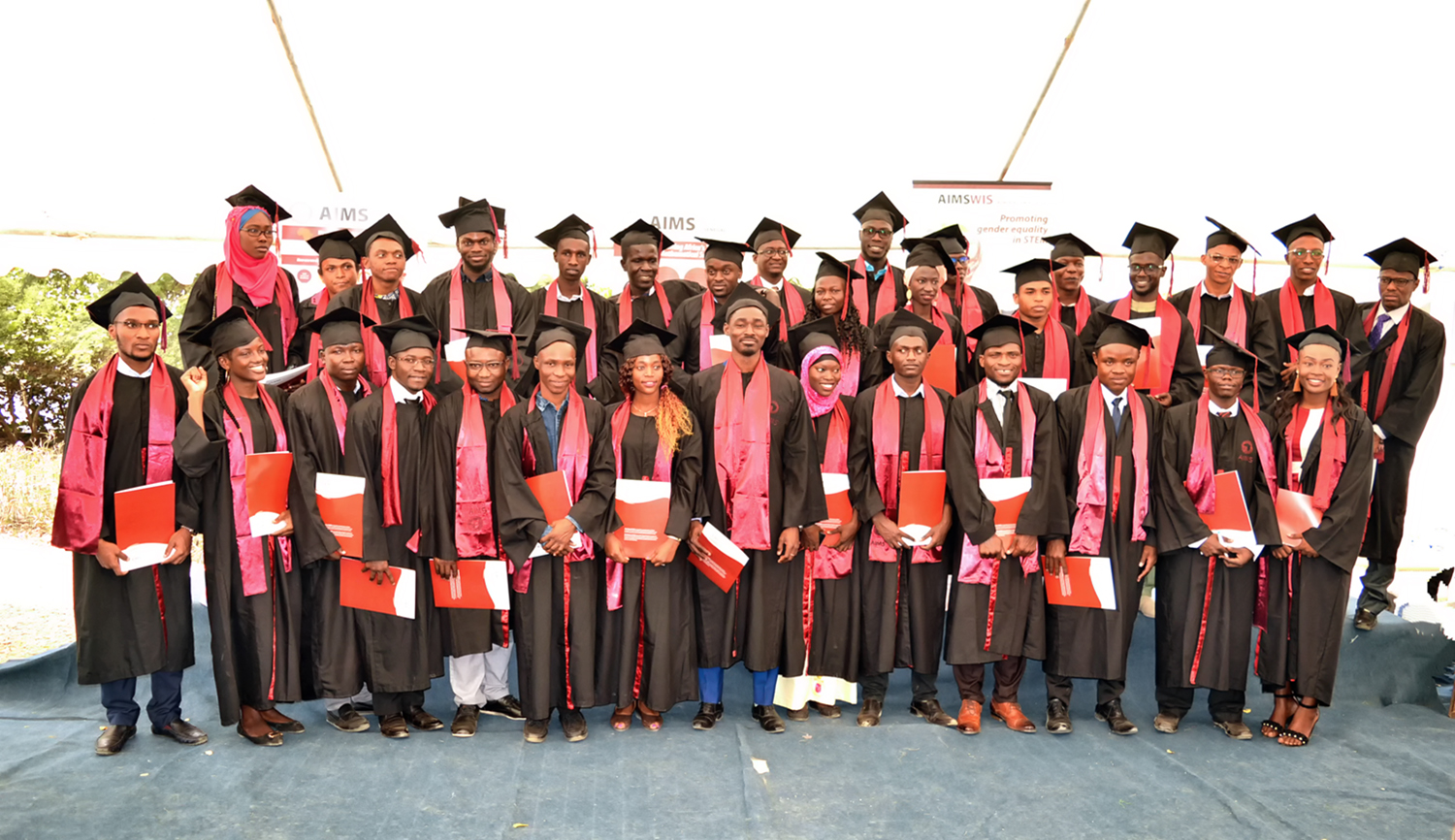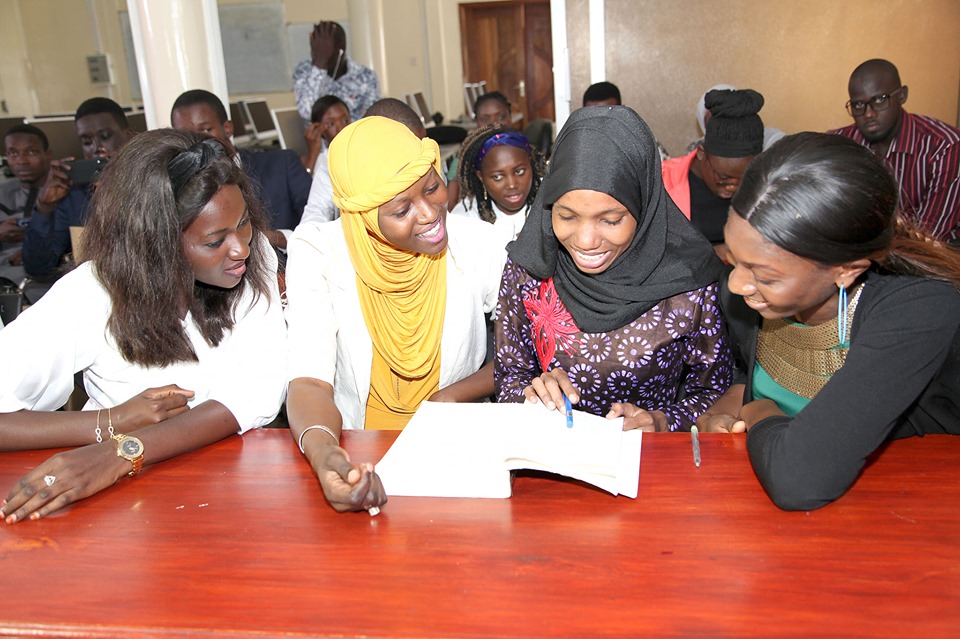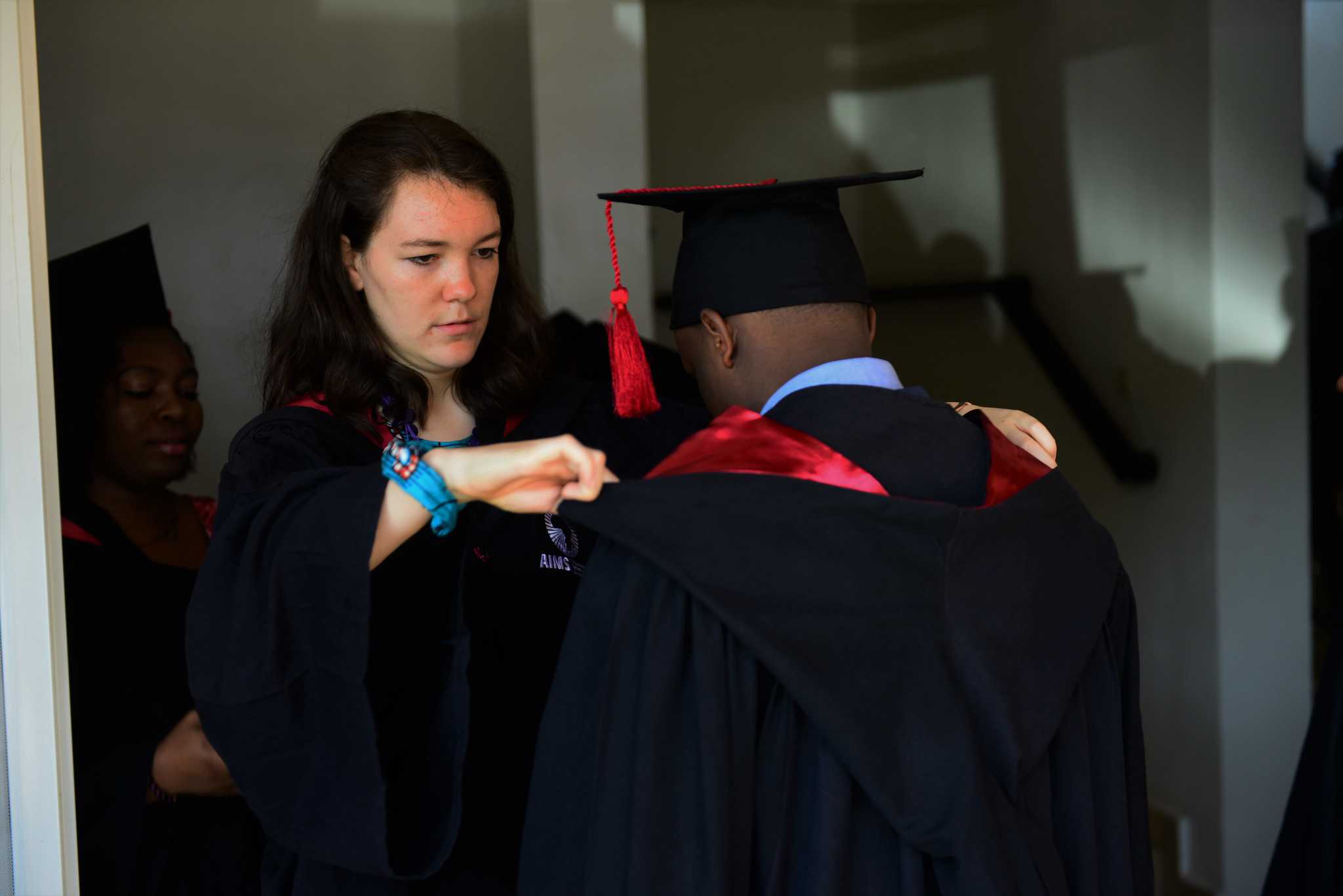
Structured Master’s Program
Overview
AIMS Senegal offers an intensive 10-month post-graduate training leading to a Master’s degree in mathematical sciences. The course provides a broad overview of cutting-edge science and strong mathematical and computer research skills. The course is unique, offering students exposure to a range of topics, thereby allowing them to make an informed choice as to their future specialisation. The goal is to develop well-rounded scientists, with excellent problem-solving skills, capable of of creative thinking and genuine innovation. There is a strong grounding in end-to-end skills, from problem formulation, estimation, prioritisation, and generally applicable mathematical and computing methods, to clear and concise scientific report writing. The aim is to equip students with the necessary tools and confidence for decision making and policy analysis.
Faculties from African universities have been intimately involved in developing the AIMS curriculum, ensuring it is integrated with local undergraduate and Master’s courses, and with local post-graduate research opportunities.
World-leading scientists and educators have volunteered to teach at AIMS centres. Their participation ensures an education of the highest international quality. Tutors (often including AIMS alumni) provide teaching and administrative support, assistance to foreign language speakers, and continuity across the visiting lecturers.

Approach
AIMS tuition, study materials and housing are fully funded through a generous scholarship. AIMS’ residential nature allows more contact time between lecturers and students than is available in a typical university setting. Students typically study two subjects for three weeks each, with each day comprising morning lectures followed by problem-solving and computing sessions each afternoon. Additional tutorials and special lectures are held in the evenings when students also usually complete their assignments.
With outstanding visiting lecturers from renowned institutions and laboratories worldwide, the courses are broad in scope and employ the latest pedagogical methods to stimulate critical and creative thinking. To facilitate student participation and follow-up, each centre offers a Tutoring Fellowship, which permits Postdoc and doctorate researchers to work as dedicated teaching assistants, providing capacity building for the students 24/7. The institute’s unique residential character allows for optimum interaction between students, lecturers, and tutors in a harmonious environment at all hours.
First Semester: Skills courses
Skills courses are compulsory and are designed to:
- Provide introductory and foundational material to the students.
- Train students in problem solving using a wide range of mathematical and computing methods.
- Provide a working knowledge of mathematics, physics and selected topics.
- They are structured to achieve pre-defined outcomes, with little flexibility in their content.

Second Semester: Review Courses
Review coursers are elective and are fundamentally different. Each is flexibly designed and together they provide a wide range of topics. Students are required to complete 11 courses selected from the 18 review courses offered (with at least two chosen from any three-week block). Choices offered are balanced as far as possible with respect to focus on mathematics, physics, computer science and interdisciplinary topics, such as bio-mathematics, financial mathematics, and more. Students can select from the list of courses in consultation with the Academic Director who ensures coherence.
The AIMS understanding is that each review course provides and overview and in depth study of some topic from a major field of modern scientific work in the mathematical science and its applications. These are often relevant to African development.
Third Semester: Research Project
During the three-month long research project phase students work on a research topic with a supervisor. Students are not expected to do original work to achieve a passing grade, but the criterion for an outstanding research project is broadly that it could constitute the early part of a Research Master’s thesis. For example, it could be publishable in a journal, or form an outstanding introduction to the field that could be. used by other students entering the area. During this phase targeted communication skills and computing classes may continue, at the supervisor’s discretion. The purpose of the research project is:
- To give students the opportunity to work with an expert supervisor on a non-trivial project.
- To go through the process of independently reviewing, understanding and explaining scientific or mathematical material.
- To optionally do experiments – on a computer or otherwise – and report the results.
- To write a scientific report, and to defend it in an oral exam.
For more information about this academic year, please you can see the academic calender 2023 – 2024
